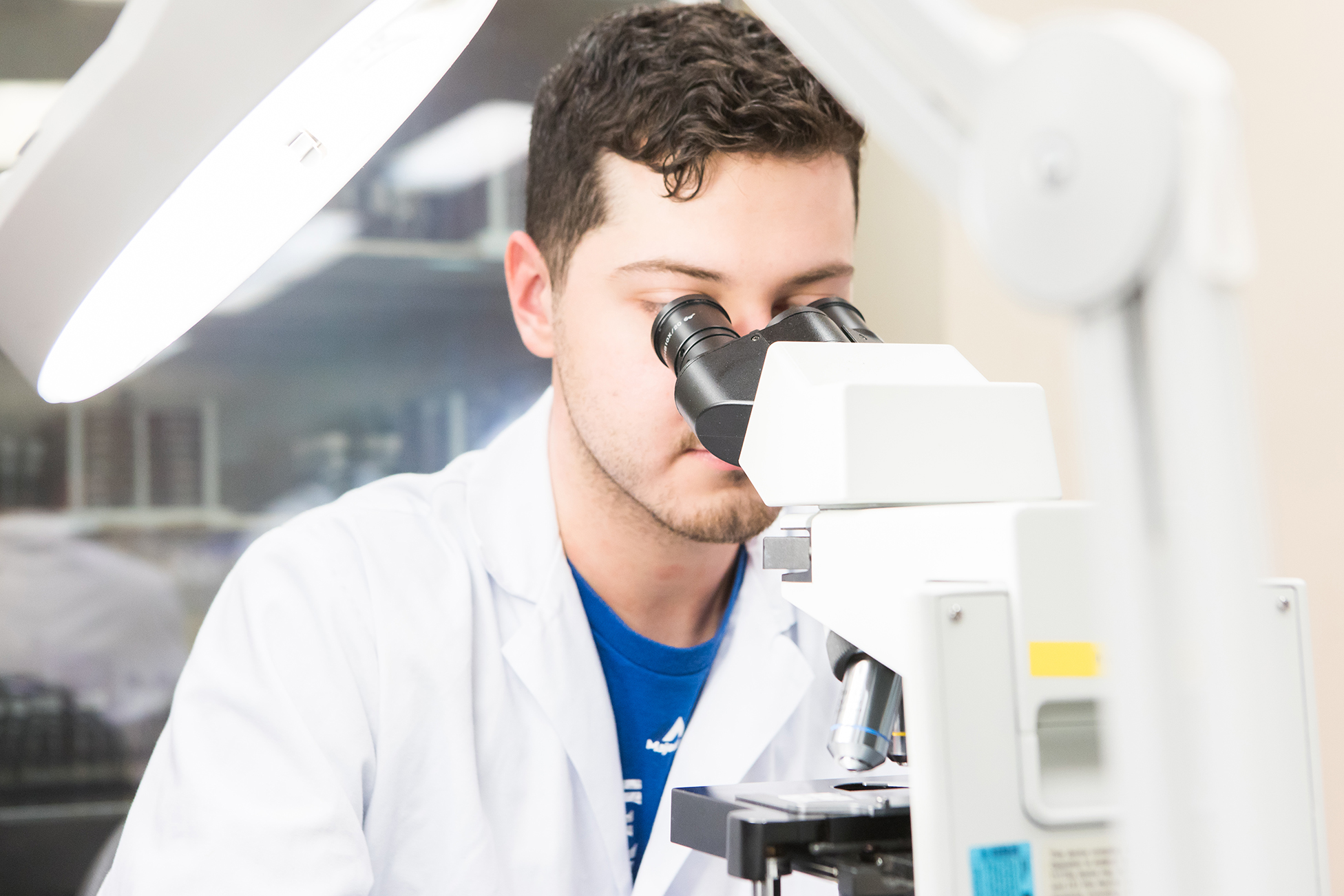About the Profession
Medical laboratory science combines the use of sophisticated instruments and techniques with the application of theoretical knowledge to perform complex procedures on tissue specimens, blood samples and other body fluids. Medical laboratory sciences include laboratory analysis in five different disciplines: Clinical Chemistry, Hematology, Histotechnology, Microbiology and Transfusion Science.
Medical laboratory technologists (MLTs) are health professionals who perform laboratory analyses and, in some locations, perform Phlebotomy to obtain samples. MLTs provide laboratory analysis results to physicians who use this information to diagnose and treat patients, as well as monitor and prevent disease.
MLTs make up one of the largest groups of regulated health care professionals in Canada. They practice in hospitals, private or public health laboratories, plus research and educational institutions.
Although MLTs work mostly independently, collaboration and communication with fellow health care professionals is a skill that is emphasized in the Michener program, as is the ability to discuss sensitive test results in a professional and responsible manner.
About the Program
The Medical Laboratory Science program at The Michener Institute of Education at UHN combines theoretical knowledge with hands-on skills development. From day one, students are immersed in a collaborative, hands-on environment simulating a clinical lab setting, learning how to communicate professionally, work both independently and in team settings and develop problem solving and critical thinking skills.
Michener’s affiliation with UHN provides cutting-edge medical equipment and access to instructors with clinical expertise. Michener’s laboratories are equipped with up-to-date equipment, including a variety of automated lab analyzers, high quality microscopes, double and five-headed microscopes and digital technology to augment student learning.
Didactic learning includes theory and laboratory analysis in five (5) disciplines and specimen procurement, including Phlebotomy.
In the final year, students will be assigned to a 20-week clinical placement to work closely under the supervision of medical laboratory technologists, with the opportunity to integrate knowledge and skills into practice, gain hands-on experience in work environments and network with potential employers.
Graduates are eligible to write the national certification examinations conducted by the Canadian Alliance of Medical Laboratory Professionals Regulators (CAMLPR). Certification qualifies the graduate to work across Canada or for registration with the provincial colleges, such as the College of Medical Laboratory Technologists of Ontario (CMLTO), which is a requirement to practice in Ontario.
The Medical Laboratory Science program is accredited by Accreditation Canada. Accreditation is a quality improvement process that ensures educational programs meet national standards and that students acquire the knowledge, skills and competencies for safe and effective care at entry to practice.
Curriculum - Medical Lab Sciences
| Year | Semester | Course Title | Course Code |
|---|---|---|---|
| 1 | Fall | Normal Microanatomy | AMML111 |
| 1 | Fall | Clinical Chemistry I | CCML112 |
| 1 | Fall | Introduction to Hematology | HEML113 |
| 1 | Fall | Introduction to Microbiology | MIML113 |
| 1 | Fall | Physiology and Pathophysiology | PPML111 |
| 1 | Fall | Molecular Diagnostics | MDML120 |
| 1 | Winter | Foundations of Interprofessional Collaboration for Medical Laboratory Technology Programs | BAIP125 |
| 1 | Winter | Hematology and Hemostasis | HEML120 |
| 1 | Winter | Introduction to Histotechnology | HIML111 |
| 1 | Winter | Clinical Instrumentation | INML120 |
| 1 | Winter | Applied Microbiology | MIML121 |
| 1 | Winter | Specimen Procurement | VPML121 |
| 2 | Fall | Clinical Chemistry II | CCML240 |
| 2 | Fall | Hematology I | HEML240 |
| 2 | Fall | Clinical Microbiology and Infectious Diseases I | MIML240 |
| 2 | Fall | Introduction to Research Methods | RMIP231 |
| 2 | Fall | Transfusion Science | TSML231 |
| 2 | Winter | Clinical Chemistry III | CCML250 |
| 2 | Winter | Hematology II | HEML250 |
| 2 | Winter | Histotechnology & Special Stains | HIML251 |
| 2 | Winter | Clinical Microbiology and Infectious Diseases II | MIML250 |
| 2 | Winter | Transfusion Practices | TSML243 |
| 2 | Summer | Clinical Education I | CLML252 |
| 2 | Summer | Interprofessional Simulated Clinical Preparation | IPML250 |
| 3 | Fall/Winter | Clinical Education II | CLML361 |
The Med Lab program not only makes us competent MLTs, but it also makes us confident in our ability to work in labs.

